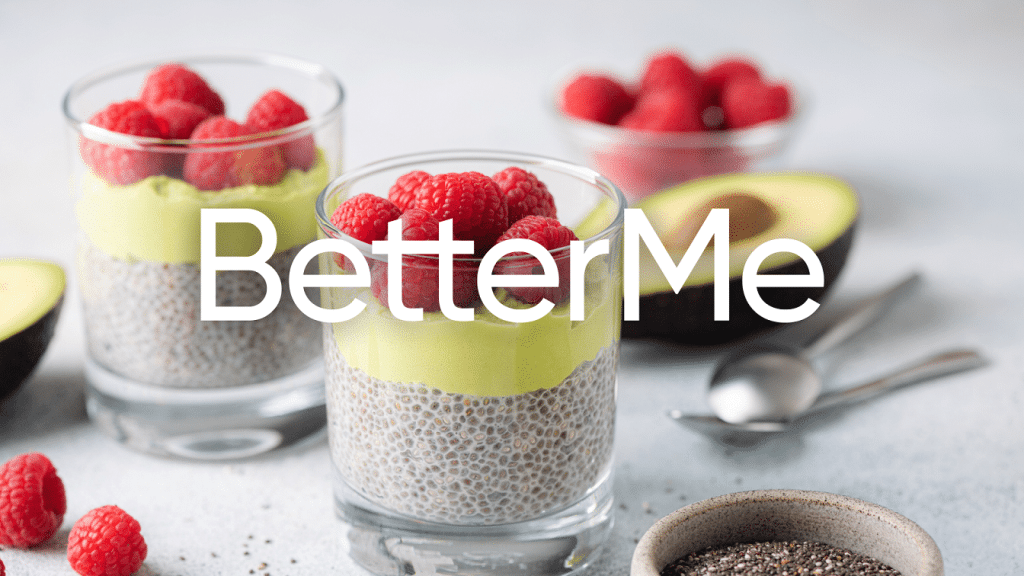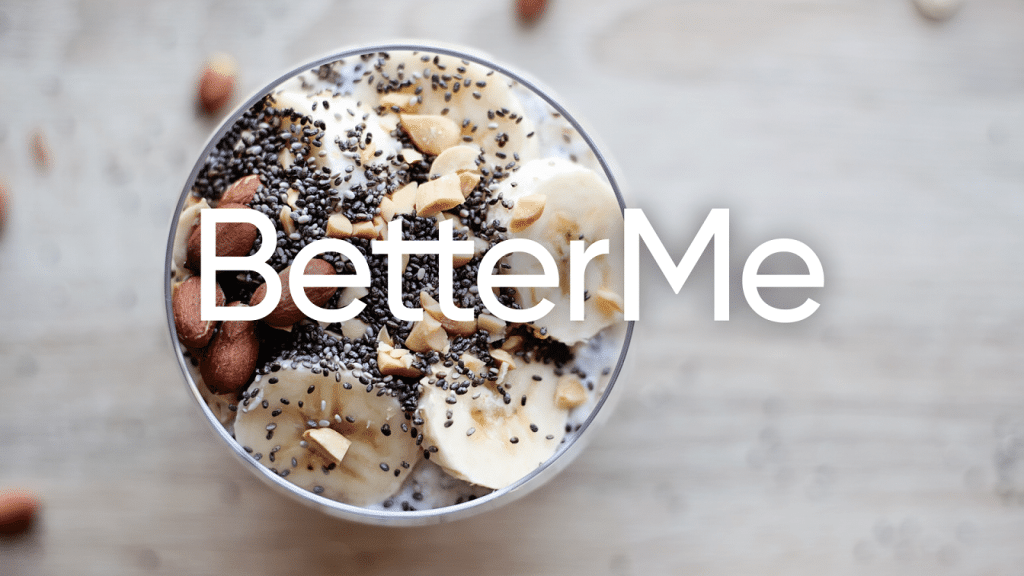Thyroid hormones perform many functions in your body, but perhaps the one you are most familiar with is the role in regulating your metabolism. The thyroid helps maintain energy levels and stimulates calorie burning (thermogenesis) (11). When working properly, this organ can increase or decrease the rate at which you burn calories, depending on what your body needs. If your thyroid function is low or inhibited, it isn’t able to do its job as effectively, which can throw your metabolism out of whack. There are a variety of reasons why your thyroid might not be performing at its peak level and we’ll explore those in this article. We’ll also look at the ideal diet for thyroid function and end with a sample menu of foods to avoid and foods to eat. Read about thyroid diet plan for weight loss below.
What Is The Thyroid?
The thyroid gland is found in the neck, right below your Adam’s apple. It consists of two lobes that are connected by a band of tissue known as the isthmus. The thyroid requires iodine—which you can get from seaweed, seafood, and iodized salt—in order to make thyroid hormones (10).
These hormones affect the rate at which your body uses oxygen and produces energy. They also affect your heart rate, blood pressure, body temperature, mood, weight, muscle strength, menstrual cycles in women, fertility in men and women, skin health, digestion, memory function, concentration abilities, and more (11).
Thyroid hormones are considered “catabolic,” meaning they break down molecules to release energy. More circulating active thyroid hormone increases the number of calories you burn and increases the basal metabolic rate (11). If your thyroid isn’t working properly and isn’t producing or activating enough of these hormones, you might have a tougher time losing weight because your basal metabolic rate is lower than it should be.
What is Hypothyroidism? Underactivity of the thyroid gland is known as hypothyroidism. It is estimated that 4% of people in the United States have this disorder, but most go undiagnosed because it usually comes with few or no symptoms (5).
The thyroid gland’s inability to make enough thyroid hormone can be caused by several factors including (5):
- Hashimoto’s disease – an autoimmune disease in which your immune system attacks your thyroid gland
- Thyroidectomy – the surgical removal of all or part of the gland
- Radiation treatment for hyperthyroidism – treatment for an overactive thyroid gland
- Congenital hypothyroidism – congenital means that you are born with it.
There are also several health conditions which are sometimes associated with thyroid disease. These include (5):
- Type 1 diabetes – an autoimmune disease where the immune system attacks the insulin-producing cells of the pancreas and results in high blood sugar levels
- Celiac disease – an autoimmune disease triggered by eating gluten, which causes malabsorption of nutrients and other health conditions
- Fibromyalgia – a condition that causes widespread pain and tenderness throughout the body
- Lupus – a chronic autoimmune connective tissue disease that can damage any part of your body Many people with hypothyroidism have no symptoms.
As a result, it’s possible for you to see a doctor about some other condition and never realize that your thyroid gland is underperforming. If you have been diagnosed with hypothyroidism, it is important that you understand that this condition can be controlled.
In some cases, your thyroid medication may need to be adjusted from time to time, but most people are able to successfully manage their disease and enjoy a normal life.
Read More: Autoimmune Diet Plan: Overview, Food List, And Everything Else You Need To Know
Which Nutrients Are Important For Thyroid Health
While not a substitute for medication prescribed by your doctor, diet is one of the ways to help manage hypothyroidism and support your thyroid gland. In terms of vitamins and minerals, the nutrients that have the biggest impact on thyroid health include:
Iodine
Iodine is a component of the thyroid hormones. In fact, an iodine deficiency is the most common cause of hypothyroidism in the world (10).
Thankfully, this problem can be easily corrected. You can get your RDA for iodine from seaweed and seafood or from iodized salt. If you have been diagnosed with hypothyroidism, do not cut back on your intake of iodine. Instead, talk to your doctor about whether a supplement may be right for you. You can also check the brand of salt you use to make sure it is iodized, and make a switch if appropriate.
Selenium
Selenium is another nutrient that is important for thyroid health. This mineral works with vitamin E to help protect the thyroid gland from free-radical damage, which often occurs due to autoimmune disorders like Hashimoto’s disease (5).
Whole grains and Brazil nuts are rich in selenium. Other good sources of this nutrient include oysters, beef, chicken, and lamb.
While adding selenium-rich foods is a great way to ensure you’re getting enough of this mineral, supplementation is not always recommended. This is because supplements often provide large doses of nutrients and selenium can be toxic in large amounts.
Zinc
Zinc is an important mineral for thyroid health because it helps your body convert T4 to T3. These are the two main forms of thyroid hormone, so if you are having issues with converting T4 to T3, then zinc may be helpful (1).
You can get your recommended daily allowance (%RDA) for zinc from oysters, beef, chicken, and lamb. But if you are taking medication for your thyroid gland, it is important to make sure you also get enough zinc each day.
Which Nutrients Are Harmful To Thyroid Health?
People with hypothyroidism should monitor their intake of certain nutrients, including:
Goitrogens
Goitrogens are substances that can interfere with iodine uptake and cause a goiter. Goiter is a condition that occurs when the thyroid gland gets enlarged due to an iodine deficiency (2).
Several foods contain goitrogens. These include:
- Cruciferous vegetables – these vegetables may be healthy, but they also contain substances that interfere with iodine uptake
- Cocoa and soy – these foods contain chemicals that can interfere with the thyroid gland
- Soy products such as tofu, miso, and tempeh – some of these are healthy for everyone on a low-carb diet while others may not be.
- Seeds such as flaxseed and sesame – these may be healthy for everyone on a low-carb diet, but only if they are soaked to eliminate the antinutrients
- Canola oil, cottonseed oil, and rapeseed oil – these can all cause problems when consumed in excess. If you have hypothyroidism, it is best to minimize your intake of these oils.
Some cooking or preparation methods may help reduce or inactivate the goitrogens in some of these foods.
What Is The Best Diet For Thyroid Patients To Lose Weight?
Hypothyroidism is not always caused by a thyroid gland that is inactive (5). Instead, it is sometimes the result of too much inflammation and an overactive immune system, often in conjunction with another autoimmune disease or chronic illness.
Sometimes those people have other conditions that disrupt glucose metabolism. Many of these people feel better and lose weight when they transition to a carbohydrate-controlled diet because:
- They are able to reduce or eliminate their medications
- Their blood sugar and insulin levels stabilize, leading to a reduction in hunger and cravings
Stable blood sugar is key for thyroid patients because they often struggle with blood sugar swings, which make them more likely to overeat (5). A carbohydrate-controlled diet can help resolve this issue.
When following a carb-controlled diet for weight loss, it is important to:
- Replace the refined carbohydrates you eliminate with whole grains, healthy fats and moderate amounts of high-quality protein. This ensures that your blood sugar and insulin levels remain stable and reduces hunger and cravings.
- Eat plenty of vegetables and healthy sources of fiber-rich carbs such as berries. While this might not lead to dramatic weight loss, it will help you maintain a healthy blood sugar and make it easier for you to stick with your diet plan.
- In addition, since hypothyroidism is sometimes the result of an autoimmune disease, following a strict autoimmune diet can be helpful if your disease has dietary triggers (such as celiac disease).
This plan eliminates foods that are commonly associated with triggering immune reactions in those with autoimmune diseases. Many people find that they feel better and lose weight when following such a diet.
BetterMe app will kick you out of the mental funk, shake off your extra weight, rid you off your energy-zapping habits, and help you sculpt the body of your dreams. Intrigued? Hurry up and change your life for the better!
The dietary restrictions for certain autoimmune disease diet are:
Gluten
This is a protein found in certain grains, including wheat, barley, rye, spelt, kamut , and triticale . It can cause inflammation throughout the body in those with celiac disease. Sometimes people with one autoimmune disease are more likely to have or develop others. For that reason, you may want to talk to your doctor about being tested for gluten sensitivity if you have another autoimmune disease or signs of one such as Hashimoto’s thyroiditis (8).
Nightshade Vegetables
These vegetables can also cause inflammation, so they are sometimes avoided by those with autoimmune diseases (13).
Dairy Products
This includes most dairy products. However, some people find that certain types of dairy are well-tolerated. If you don’t personally experience a reaction to a particular food, there is no need to avoid it.
Alcohol And Caffeine
Both alcohol and caffeine can be irritating to the GI tract and cause inflammation. It may be best to avoid or limit beverages containing them.
Foods To Eat On The Thyroid Diet Plan
While following a combination of low-carb and autoimmune diet principles, here are some foods people with hypothyroidism can eat:
Eggs
Egg yolks are rich in iodine and selenium and whites are rich in protein. For those reasons, eggs can help improve thyroid function and increase metabolism (9).
Meat And Fish
All meats, including lamb, beef, and chicken, are good sources of high-quality protein.In addition, organ meats such as liver and kidneys are excellent sources of nutrients including vitamin A and iron (9). Fish and other seafood are great sources of protein, iodine, and anti-inflammatory omega-3 fatty acids.
Vegetables
Many vegetables contain antioxidants that support a healthy immune system and protect against inflammation (3). These include garlic, onions, sweet potatoes, butternut squash, carrots, artichokes, spinach, asparagus, and cucumbers.
Read More: Broccoli Microgreens Nutrition Facts, Health Benefits, And Side Effects
Fruits, Especially Berries
People with hypothyroidism are often low in vitamin C. This can contribute to thyroid function problems. Berries are rich in the immune-supporting nutrient so they can improve thyroid health by maintaining a healthy immune system (7).
While fruit is high in natural sugar, it also contains many nutrients such as vitamins and antioxidants that support thyroid function and a healthy immune system, plus fiber which slows down the absorption of that sugar. However, some fruits are higher in sugar than others so it may be best to limit your intake of dates and other dried fruits.
Nuts And Seeds
Nuts and seeds are good sources of healthy fats, fiber, vitamins, minerals, and antioxidants. They can also reduce inflammation in the body so they are good for those with Hashimoto’s thyroiditis (4). For those reasons, it is great to include nuts and seeds in your diet.
Gluten-Free Grains And Seeds
Including gluten-free grains and seeds in your diet can help provide a good source of fiber, vitamins, minerals, and antioxidants. It can also reduce inflammation in the body (8). For those reasons, it is best to include whole grains in your diet if you are able to tolerate them.
Some of the best gluten-free grains for a thyroid diet plan include:
- Rice
- Buckwheat
- Quinoa
Dressings And Condiments
While you want to limit highly processed foods, there are certain condiments and dressings that provide a lot of flavor without many negative consequences.
For example, olive oil is rich in vitamins E and K so it can improve thyroid function. In addition, apple cider vinegar contains acetic acid which may have antiviral properties (9). Therefore, it is perfectly fine to eat dressings and condiments made with these ingredients, especially if you make them yourself.
Foods To Avoid On The Thyroid Diet Plan
Fortunately, you don’t have to avoid many foods if you have hypothyroidism. However, foods that contain goitrogens should be eaten in moderation and ideally cooked.
To lose weight on the thyroid diet plan, avoid:
Millet
This is rich in goitrogens so it should be eaten sparingly (12).
Soy Products
Soy products are commonly processed so they are best avoided especially for people who have an autoimmune disease. They are often high in phytoestrogens which may interfere with thyroid function (12).
Highly Processed Foods
Hot dogs, lunch meats, pastries, and other highly-processed foods should be limited or eliminated because they do not provide much in the way of nutrition and may interfere with thyroid function (12). They also contribute to weight gain.
Caffeinated Beverages And Alcohol
Although caffeine does not affect thyroid function directly, it can interfere with the body’s absorption of iodine and therefore, should be limited or avoided. Alcohol may interfere with thyroid hormone synthesis so it should also be limited or avoided (6).
Lean and toned up body isn’t just a far-fetched fantasy. Check out the BetterMe app and watch it propel your weight loss journey into high gear!
Thyroid Diet Plan Sample
This meal plan provides a healthy amount of protein, a moderate amount of carbs, and thyroid-friendly nutrients.
Day One
- Breakfast: Avocado and eggs on toast
- Lunch: Tuna salad wrap
- Dinner: Roasted sweet potatoes and pan-seared salmon
- Snacks: Brazil nuts
Day Two
- Breakfast: Oatmeal with berries
- Lunch: Grilled steak and potatoes
- Dinner: Chicken salad
- Snack: Carrot sticks
Day Three
- Breakfast: Smoothie made with yogurt, berries, and flaxseed
- Lunch: Chicken salad
- Dinner: Chickpea curry and rice
- Snacks: Pistachios, apple
Day Four
- Breakfast: Scrambled eggs with tomatoes and spinach and whole wheat bread
- Lunch: Chickpea curry and rice
- Dinner: Baked chicken and roasted cauliflower
- Snacks: Celery with peanut butter, low-fat plain yogurt
Day Five
- Breakfast: Omelet with asparagus, mushrooms, and goat cheese
- Lunch: Whole wheat pasta with marinara sauce
- Dinner: White fish, rice, and broccoli
- Snacks: Yogurt with berries
Day Six
- Breakfast: Avocado, eggs, and toast
- Lunch: Shrimp salad
- Dinner: Baked chicken thighs with roasted potatoes
- Snacks: Apple with almond butter
Day Seven
- Breakfast: Quinoa and egg bowl
- Lunch: Roasted sweet potatoes and lentil salad
- Dinner: Baked salmon and brown rice
- Snacks: Almonds
Conclusion
A hypothyroidism diet plan does not have to be complicated and difficult to maintain for life. Instead, a thyroid diet plan can be fairly simple to follow and maintain if you know what foods to eat, avoid, and which recipes you should prepare.
To lose weight on this diet, go for whole foods that are high in nutrients and limit highly-processed foods while avoiding gluten-containing grains (if you need to), soy, caffeinated beverages, and alcohol.
DISCLAIMER:
This article is intended for general informational purposes only and does not address individual circumstances. It is not a substitute for professional advice or help and should not be relied on to make decisions of any kind. Any action you take upon the information presented in this article is strictly at your own risk and responsibility!
SOURCES:
- Effect of zinc supplementation on thyroid hormone function: A case study of two college females (2007, pubmed.gov)
- Goitrogens (2020, sciencedirect.com)
- Health Benefits of Fruits and Vegetables (2012, nih.gov)
- Health Benefits of Nut Consumption (2010, nih.gov)
- Hypothyroidism (2017, nih.gov)
- Impact of alcohol use on thyroid function (2013, nih.gov)
- Potential Health Benefits of Berries (2005, researchgate.net)
- The Effect of Gluten-Free Diet on Thyroid Autoimmunity in Drug Naive Women with Hashimoto’s Thyroiditis: A Pilot Study (2018, nih.gov)
- The History and Future of Treatment of Hypothyroidism (2016, nih.gov)
- Thyroid gland (n.d., betterhealth.vic.gov.au)
- Thyroid Hormone Regulation of Metabolism (2014, nih.gov)
- Various Possible Toxicants Involved in Thyroid Dysfunction: A Review (2016, nih.gov)
- What’s the Deal with Nightshade Vegetables? (2019, clevelandclinic.org)



















